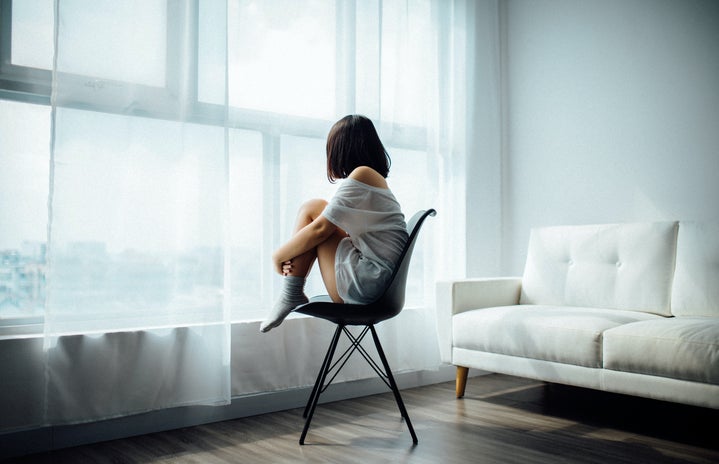TW: This article contains sensitive material and mentions of suicide and depression. If you feel triggered, please know that there are resources to help you.
From school stress to the weight of the pandemic, now is generally not the most enjoyable of times. It gets worse when you add seasonal depression into the mix. Below, you’ll find five tips on how to manage this form of depression. Be sure to incorporate them whenever you’re feeling down!
To begin, seasonal depression, or seasonal affective disorder (SAD), is a form of depression that starts during a change of seasons, generally when fall begins. This depression continues during the fall and winter and ends in the spring. SAD is not just “winter blues,” it is a form of depression that affects how you think and feel, even impacting your day-to-day life.
SAD shows up more often in younger people and women. Researchers don’t know exactly what causes it, but there are some theories. Many say that the lack of sunlight triggers its onset for those who are prone to developing SAD. A biomedical change in the brain, triggered by reduced sunlight and shorter days, can cause low levels of serotonin and higher levels of melatonin. Vitamin D deficiency, negative thoughts and brain chemical imbalances are all things that are theorized to contribute to SAD. You can learn more about it and seasonal depression here.
But there are ways to conquer it! Here are my five tips on how to manage this form of depression:
Light Therapy/Dawn Simulator
According to the National Alliance on Mental Illness, experiencing a daily 30-minute light box exposure stimulates high-intensity sunlight, which is helpful in treating SAD. A dawn simulator may be easier to use regularly. It is a bedside light that gradually gets brighter in the morning, simulating dawn. This light slowly brightens to affect your body, and by the time you wake up, the treatment is finished. You can simply continue with your day instead of having to spend 30 minutes sitting in front of a bright lightbox. Do some research on good options that fit your budget, like this, this, this and this.
Social Time
It is easy to isolate yourself when you are feeling down, especially during the pandemic. Studies have shown that periods of isolation can have long-lasting psychological effects on people, including depression. This is why it is important to proactively fill the colder months with social activities. You can do things like play winter sports, go for hikes, meet in local parks and schedule video calls to get in that much-needed social time.
AromaTherapy
Aromatherapy may lessen symptoms of depression and help with other health concerns like anxiety and insomnia. They can be used as a simple way to boost your mood and orchestrate a calming atmosphere. Check out some of my favourite fall essential oils and ways to improve your study space using them here!
Move your body
Exercise is helpful to anyone suffering from depression. It sends out endorphins that help boost your mood and reduce pain. It can also increase metabolism and energy levels. Go for a jog, have a solo dance party or hike a local trail to release those endorphins!
Spend time outside
Studies have shown that spending time outside in greenery can elevate your mood and sense of well-being. With SAD, spending as much time as you can in the sun is very important.
Seasonal depression should be taken seriously and addressed accordingly! Using these tips should help ease some of the symptoms.
Remember, always reach out to a local healthcare professional or trusted family and friends if you need help!
If your sleep and appetite patterns have changed or you begin to feel hopeless and develop suicidal thoughts, it is important to seek help.
Help is always available for suicide crisis and prevention.
Canada Suicide Prevention Service (1-833-456-4566)
The Hope for Wellness Help Line
If you or someone you know is in immediate danger, please call 9-1-1.


